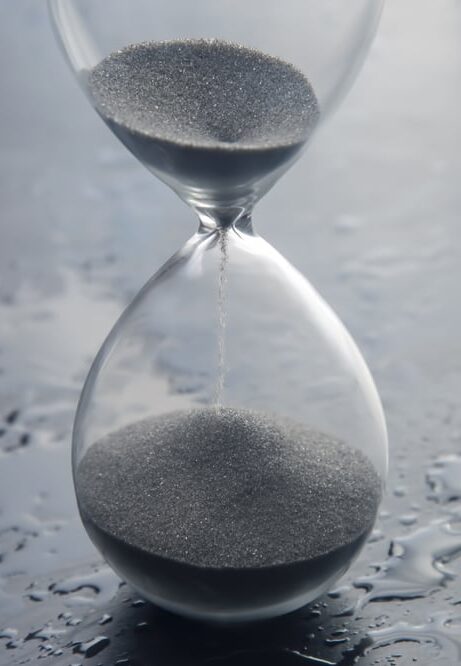Skip To Section
What is Alcohol Withdrawal?
Alcohol withdrawal occurs after someone suddenly stops drinking alcohol after a persistent, excessive pattern of drinking. Both the brain and the body suddenly must adjust to the lack of alcohol. This adjustment process is known as withdrawal, and it causes potentially dangerous health and psychological symptoms. As the body rids itself of alcohol, a range of physical symptoms will occur, such as tremors, sweating, nausea, and, in severe cases, seizures.
Alcohol Withdrawal Symptoms Timeline
How long does alcohol withdrawal last? Alcohol withdrawal symptoms can occur within about eight hours after your last drink. For some people, the onset is a few days later. The more severe symptoms typically peak between 24 and 72 hours. Symptoms can linger for several days or weeks.
The timeline for alcohol withdrawal symptoms can vary based on factors such as the amount and duration of alcohol use and the individual’s health. What to expect from the alcohol withdrawal timeline also may depend on body size, age of the person, and if they ate before their last drinks. Here’s what to expect:

6-12 Hours After Last Drink
Mild symptoms begin to develop in the first few hours after the last drink. These symptoms persist as the body registers that alcohol is not being consumed again and often trigger someone to seek more alcohol. Common mild symptoms include:
- Nagging anxiety
- Headache
- Nausea and vomiting
- Insomnia
- Sweating
- Tremors
- Rapid heart rate
12-24 Hours After Last Drink
Mild symptoms evolve into moderate symptoms as time passes. At this secondary withdrawal stage, the person often feels like they’ve lost control. Common symptoms of this stage include:
- Continued nausea
- Hallucinations (auditory, visual, or tactile)
- Anxiety and jitters
- Difficulty concentrating
- Intense alcohol cravings
24-48 Hours After Last Drink
One to two days after the last drink is when severe symptoms commonly occur. This stage involves a high risk of seizures. Medical supervision becomes increasingly crucial at this stage. Symptoms from previous stages occur in varying levels of intensity, such as anxiety and shakiness, feeling clammy and nauseous, and experiencing intense physical pain.
48-72 Hours After Last Drink
At this point, alcohol withdrawal symptoms peak. The risk of delirium tremens (DTs) is at the highest in this stage, which is a medical emergency and can be fatal without treatment. DTs are very dangerous because the body has become dependent on alcohol to function. Associated symptoms emerge quickly and involve:
- Severe disorientation and confusion
- Body tremors
- Agitation
- Changes in mental functioning
- Hallucinations (seeing, hearing, or feeling things that are not there)
- Restlessness
- Rapid bursts of energy
- Extreme sensitivity to lights, sounds, or touch
- Seizures
72+ Hours After Last Drink
After several days without drinking, Post-Acute Withdrawal Syndrome (PAWS) occurs. Some symptoms from the acute stages of withdrawal persist for weeks or even months as the brain adjusts to the absence of alcohol. Common symptoms associated with PAWS include:
- Anxiety
- Depression and other mood disorders
- Sleep disturbances
- Cognitive impairments
- Alcohol cravings (most severe three weeks after last drink)
"*" indicates required fields
Fill out the form below and one of our admissions team members will reach out to you:
"*" indicates required fields
What Happens During Alcohol Detox?
Alcohol detox is an intense process. When you stop drinking for a while, toxins are eliminated while your body adapts to not drinking. This process causes uncomfortable effects that are potentially dangerous. Because each person is different, medical detox is tailored to each individual’s needs.
Trained medical professionals may administer medications that help reduce or eliminate alcohol withdrawal symptoms as you move toward sobriety. Common medications used in a detox setting include:
- Naltrexone
- Disulfiram (Antabuse)
- Acamprosate (Campral)
- Benzodiazepines
During acute withdrawal, many people experience intense urges to drink. Without supervision, relapse is expected during this phase. What’s more, re-inserting yourself into the same social drinking circles can keep the drinking cycle going–it’s a tough one to break without the proper support.
Fortunately, detox removes you from the environment where drinking occurred to help eliminate some of your triggers. Focusing exclusively on your recovery is essential during the detox process.
How Does Alcohol Detox Help with Sobriety?
Alcohol detox is a critical first step in the journey to sobriety for individuals struggling with alcohol addiction. In fact, people who have just stopped drinking are required to attend a detox program before beginning any other treatment format. By addressing the physical dependence on alcohol and starting to work on the psychological aspects of addiction, detox helps individuals take the first essential steps toward a healthier, sober life.
Detox helps stabilize your body and mind, but it’s not a substitute for alcohol addiction treatment. Most people benefit from long-term clinical treatment. Residential (also known as inpatient) or outpatient alcohol treatment gives you tools for moving forward in your recovery.
Getting Help for Alcohol Withdrawal Symptoms
Living a life free from alcohol addiction is possible, and there is no shame in needing help while you endure alcohol withdrawal symptoms. Medical supervision is something everyone experiences during detox and while they’re progressing toward a meaningful life of sobriety.
Resisting alcohol is challenging, but you can have a chance to heal and live a life worth living. If you or a loved one is ready to commit to positive change, contact Footprints to Recovery. A representative will answer any questions you have, and you can be on the road to recovery from alcohol addiction today.
- https://www.niaaa.nih.gov/alcohols-effects-health/alcohol-topics/alcohol-facts-and-statistics/alcohol-use-disorder-aud-united-states-age-groups-and-demographic-characteristics
- https://www.niaaa.nih.gov/publications/brochures-and-fact-sheets/understanding-alcohol-use-disorder
- https://medlineplus.gov/ency/article/000764.htm
- https://medlineplus.gov/ency/article/000766.htm
Our admissions team is available 24/7 to listen to your story and help you get started with the next steps.



